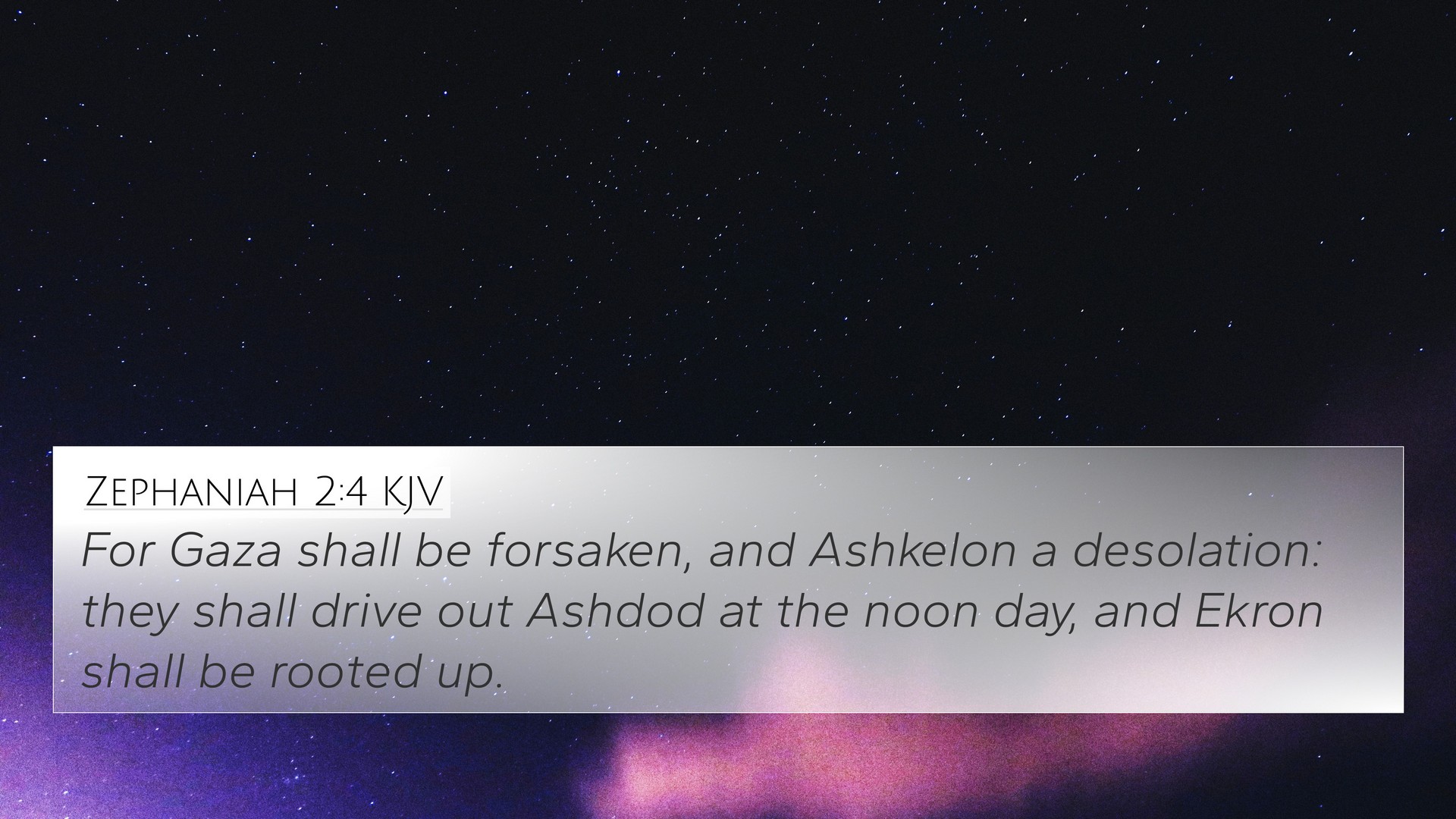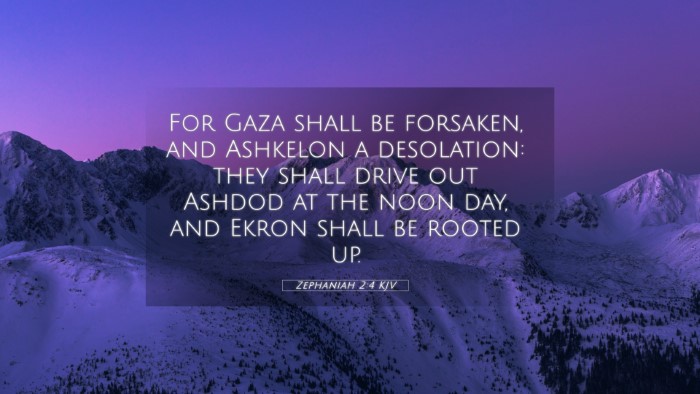Old Testament
Genesis Exodus Leviticus Numbers Deuteronomy Joshua Judges Ruth 1 Samuel 2 Samuel 1 Kings 2 Kings 1 Chronicles 2 Chronicles Ezra Nehemiah Esther Job Psalms Proverbs Ecclesiastes Song of Solomon Isaiah Jeremiah Lamentations Ezekiel Daniel Hosea Joel Amos Obadiah Jonah Micah Nahum Habakkuk Zephaniah Haggai Zechariah MalachiZephaniah 2:4 Similar Verses
Zephaniah 2:4 Cross References
For Gaza shall be forsaken, and Ashkelon a desolation: they shall drive out Ashdod at the noon day, and Ekron shall be rooted up.
Uncover the Rich Themes and Topics of This Bible Verse
Listed below are the Bible themes associated with Zephaniah 2:4. We invite you to explore each theme to gain deeper insights into the Scriptures.
Zephaniah 2:4 Cross Reference Verses
This section features a detailed cross-reference designed to enrich your understanding of the Scriptures. Below, you will find carefully selected verses that echo the themes and teachings related to Zephaniah 2:4 KJV. Click on any image to explore detailed analyses of related Bible verses and uncover deeper theological insights.
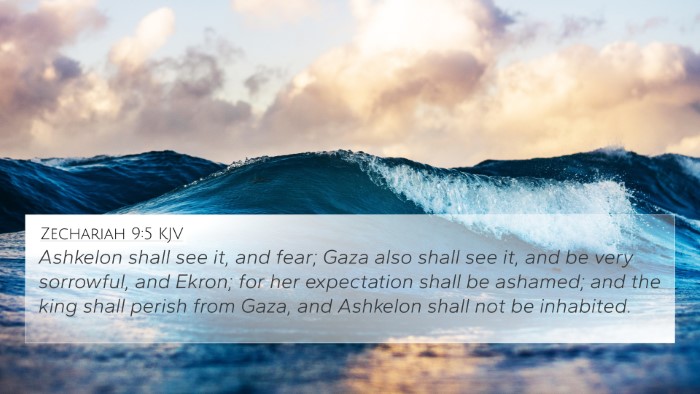
Zechariah 9:5 (KJV) »
Ashkelon shall see it, and fear; Gaza also shall see it, and be very sorrowful, and Ekron; for her expectation shall be ashamed; and the king shall perish from Gaza, and Ashkelon shall not be inhabited.

Amos 1:6 (KJV) »
Thus saith the LORD; For three transgressions of Gaza, and for four, I will not turn away the punishment thereof; because they carried away captive the whole captivity, to deliver them up to Edom:
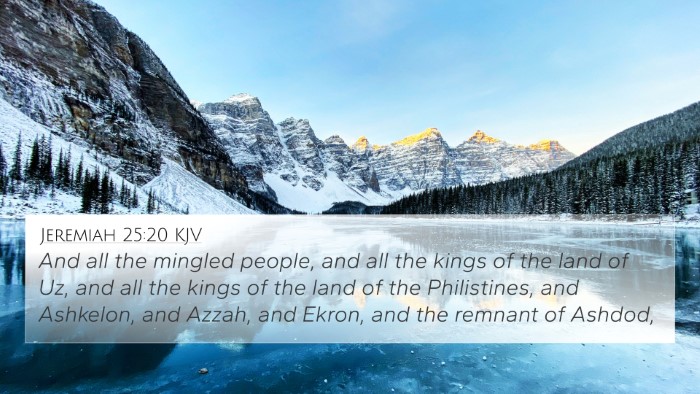
Jeremiah 25:20 (KJV) »
And all the mingled people, and all the kings of the land of Uz, and all the kings of the land of the Philistines, and Ashkelon, and Azzah, and Ekron, and the remnant of Ashdod,
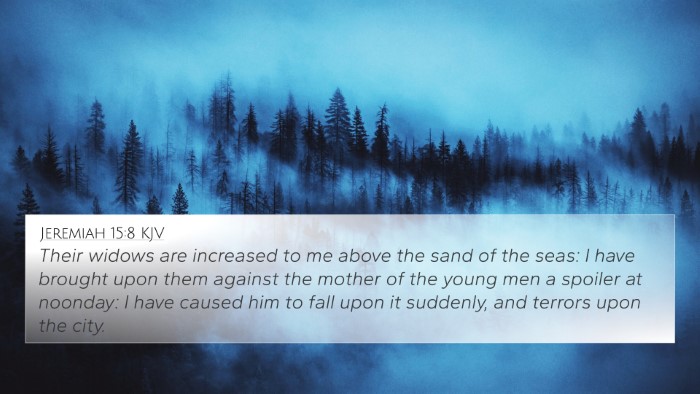
Jeremiah 15:8 (KJV) »
Their widows are increased to me above the sand of the seas: I have brought upon them against the mother of the young men a spoiler at noonday: I have caused him to fall upon it suddenly, and terrors upon the city.
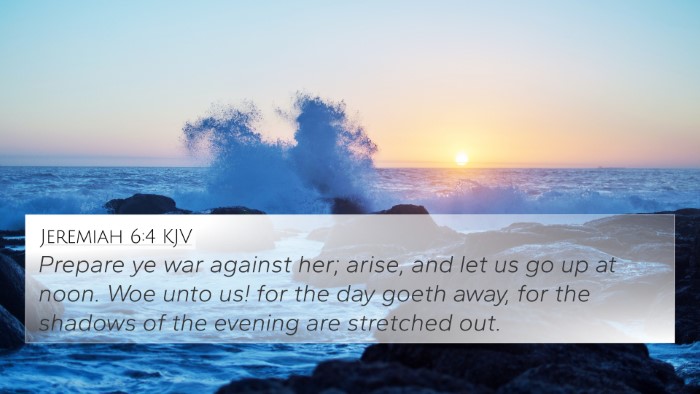
Jeremiah 6:4 (KJV) »
Prepare ye war against her; arise, and let us go up at noon. Woe unto us! for the day goeth away, for the shadows of the evening are stretched out.
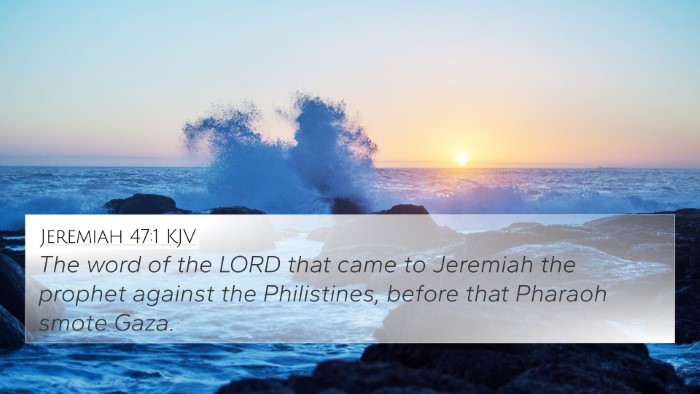
Jeremiah 47:1 (KJV) »
The word of the LORD that came to Jeremiah the prophet against the Philistines, before that Pharaoh smote Gaza.
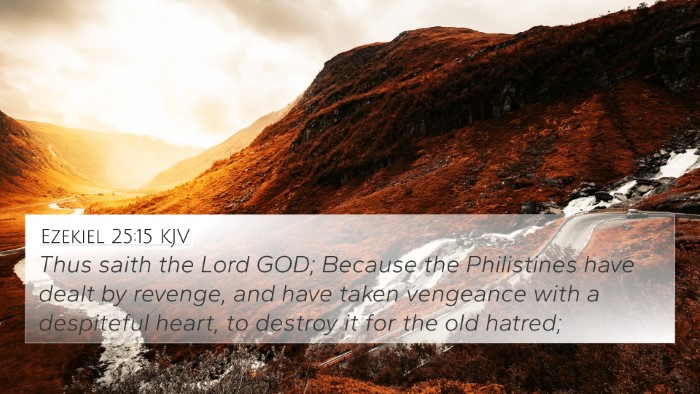
Ezekiel 25:15 (KJV) »
Thus saith the Lord GOD; Because the Philistines have dealt by revenge, and have taken vengeance with a despiteful heart, to destroy it for the old hatred;
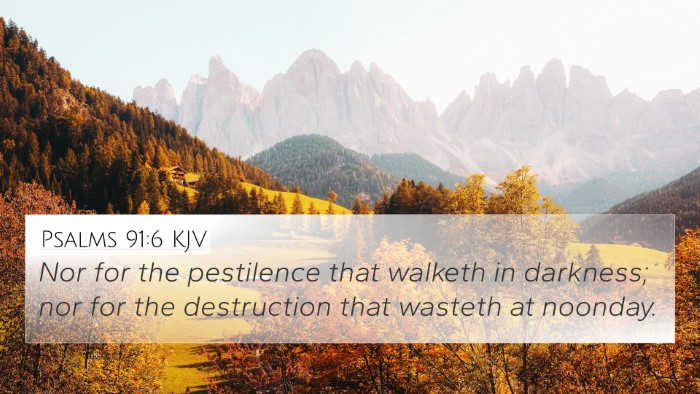
Psalms 91:6 (KJV) »
Nor for the pestilence that walketh in darkness; nor for the destruction that wasteth at noonday.
Zephaniah 2:4 Verse Analysis and Similar Verses
Understanding Zephaniah 2:4: A Comprehensive Analysis
Zephaniah 2:4 states: "For Gaza shall be forsaken, and Ashkelon a desolation: they shall drive out Ashdod at the noon day, and Ekron shall be rooted up."
This verse is a pronouncement of judgment upon the Philistine cities and serves as part of God’s warning through the prophet Zephaniah regarding impending calamities that shall befall them due to their idolatry and opposition to Israel.
Commentary Insights
Here, we delve into the interpretations from notable public domain commentaries:
- Matthew Henry emphasizes the certainty of God’s judgments and the complete dereliction of the Philistine city-states as a result of their continual disobedience. He notes that these historical cities represent not just physical places, but also spiritual conditions of rebellion against God.
- Albert Barnes interprets the verse as an unequivocal message about the ultimate fate of the Philistines. He points out how Gaza and Ashkelon are described as forsaken and desolate, which reflects the broader theme of divine retribution against nations that oppose God's people and His covenant.
- Adam Clarke expands on the imagery of desolation present in this verse, suggesting that the destruction signifies a profound spiritual truth: that those who oppose God will ultimately face destruction. He connects the historical context with prophetic significance regarding God’s sovereignty over nations.
Cross References and Thematic Connections
Zephaniah 2:4 has several cross-references that highlight its themes and context, illustrating connections across the Bible:
- Jeremiah 47:1-7 - A prophecy against the Philistines, reinforcing the idea of impending doom.
- Amos 1:6-8 - God's judgment on the Philistine cities emphasizing their destruction.
- Ezekiel 25:15-17 - The Lord’s pronouncement of vengeance against the Philistines for their actions.
- Isaiah 14:29-31 - A similar theme of judgment against Philistia.
- Micah 1:10-16 - Warnings about destruction affecting cities.
- Obadiah 1:20 - The fate of the exiles of the Israelites and their relation to Philistine judgment.
- Joel 3:4-8 - A prophecy regarding the retribution against nations that have wronged Israel.
Applying the Verse: Insights for Today
This verse and its commentaries remind believers of the seriousness of turning away from God. The desolation of Gaza, Ashkelon, and others offers a stark reminder of the consequences of idolatry and rebellion against divine authority.
In our modern context, this can inspire readers to engage in Bible cross-reference studies as a tool to deepen their understanding of biblical themes and the interconnections that shape the narratives of both the Old and New Testaments. By examining connections between different biblical texts, one can gain insights into God’s character and His dealings with humanity throughout history.
Resources for Cross-Referencing
To engage in deeper study, consider the following tools and methodologies:
- Bible Concordance - A guide to finding key verses and their themes.
- Cross-reference Bible study guides - Materials that assist in identifying relevant scriptures.
- How to use Bible cross-references - Learning the methods for tracing similar themes dynamically.
- Bible reference resources - Compilations that link verses across various contexts.
Conclusion
The analysis of Zephaniah 2:4 demonstrates the relevance of prophetic literature and the profound implications of divine judgment. For those exploring the Bible, using cross-referencing tools can illuminate intricate themes and help form a cohesive understanding of God's message across the scriptures.
